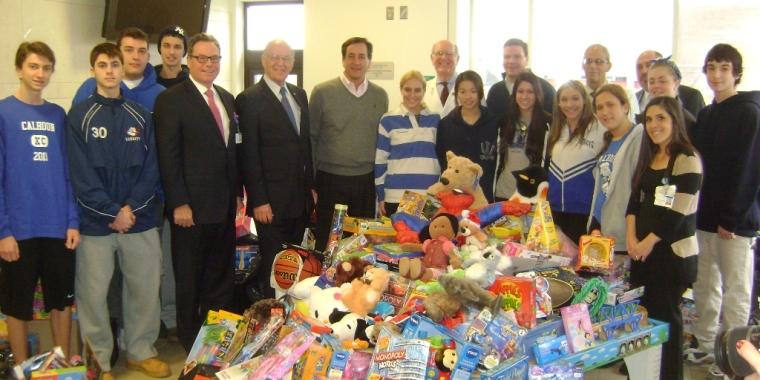Transportation Committee Approves Bill to Require Judicial Review and Approval of Conditional Licenses for Those Arrested for Dwi
Charles J. Fuschillo Jr.
January 19, 2011
-
ISSUE:
- Transportation
-
COMMITTEE:
- Transportation
New Measures to Improve Roadway Safety and Help Municipalities Share Services Also Approved
Senator Charles J. Fuschillo, Jr. (R-Merrick), Chairman of the Senate’s Transportation Committee, today announced that the committee has approved legislation he sponsored to stop those arrested for drunk driving from being approved for a conditional license to go back on the roads without a judge’s approval.
“Driving is a privilege, not a right. Requiring a judicial review and approval before granting a conditional license to someone who has been arrested for drunk driving would provide an additional level of protection for the other drivers on our roads. I’m pleased that this legislation has been approved by the Senate Transportation Committee and am hopeful that it will soon be passed by the full Senate,” said Senator Fuschillo.
Under current law, those arrested for DWI can apply for a conditional license from the Department of Motor Vehicles (DMV) after an initial 30 day license suspension. Conditional licenses allow individuals to drive in certain circumstances, including: driving to and from work, school, doctors offices, child care, the DMV, the probation department, and DWI programs. Licensees are also allowed to drive as part of their job (if need be) and also for three hours a week to run errands and handle personal business. Arraigned drunk drivers are virtually approved automatically for a conditional license by DMV, as long as they have not been enrolled in a DWI program in the prior five years.
Additionally, these individuals can forgo the 30 day license suspension by applying for a hardship license. These licenses, which must be approved by a judge, allow individuals to drive to work, school, and doctors offices.
Under Senator Fuschillo’s legislation (S526), before DMV could issue a conditional license to someone arrested for drunk driving, the judge handling that person’s case would need to hold a hearing and give his or her consent. Additionally, Senator Fuschillo’s legislation would require those who are issued a hardship license to install an ignition interlock in their vehicles.
In one of the more telling examples of why the law needs to be changed, Jose Borbon was given a conditional license after being arrested in January 2009 for drunk driving, criminal possession of a weapon, holding more than one license, and failure to obey a traffic device. On February 22, 2009, while out on bail and driving with a conditional license, he drove drunk again, this time killing Suffolk County Police Officer Glen Ciano.
In other business, the Transportation Committee also approved several other bills which would improve safety on the roadways and help municipalities save taxpayer dollars through sharing services:
S600 (Fuschillo): This legislation would add definitions of the terms “impaired” and “intoxication” to the Vehicle and Traffic Law. Currently, individuals can be charged with a DWI offense only if they are intoxicated by alcohol or a by one of the drugs listed in the public health law. This bill makes it clear that intoxication is a state of mind, notwithstanding the intoxicant. This means that drivers who become intoxicated by ingesting substances not in the law (such as inhaling aerosol cans) would no longer be able to escape prosecution for a DWI offense.
S764 (Young): This legislation would allow two or more towns to jointly purchase and store highway equipment. Under present law, each town must purchase and store its own highway equipment. Allowing towns to consolidate and share services, as this legislation would do, would save taxpayer dollars.
S957 (Marcellino): This legislation would prohibit drivers from using radar and laser blocking devices in their vehicles. These devices are used to evade law enforcement officers who are using radar or laser to track speed along the roads. California, Minnesota, Oklahoma, Virginia, Nebraska, and Washington DC all have similar laws. Violators of the law would face a fine of up to $100.
S1208 (Johnson): This legislation would prohibit the operation of any vehicle, except an emergency vehicle or authorized public transportation vehicle, that is equipped with a device which affects the operation of a traffic control signal. This bill would create class A misdemeanor charges for those who use these devices illegally, with class E felony charges if someone using the devices illegally cause serious injury or death.
S1369 (Dilan): The legislation would remove limitations on shared services and permit counties and towns to contract with other government entities for shared services even if they are not located within that municipality’s borders. Current law allows counties and towns to rent road machinery from any municipality, district corporation, school district, community college, or any unit of the state university, only if they are located within that county or town’s respective borders.
####


